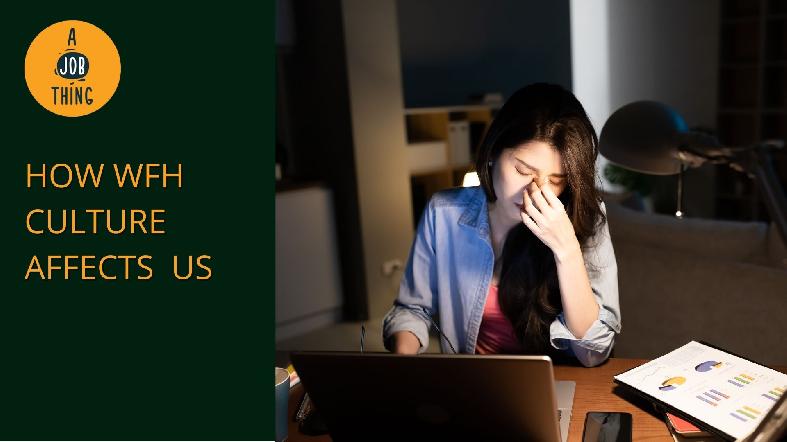
How WFH Culture Affects Employers and Workers
Are You Hiring?
Find candidates in 72 Hours with 5+ million talents in Maukerja Malaysia & Ricebowl using Instant Job Ads.
HIRE NOW
The phrase "Work From Home" (WFH) became extremely popular during the Covid-19 pandemic. To control the spread of the virus, along with several versions of the Movement Control Order, it seems that working from home is the most viable choice.
Nonetheless, although WFH is now considered the "new normal", it is interesting to see that this phenomenon is anything but new. Working from home was the norm in the past.
For instance, based on a census carried out in 1900s France, there were over 1.5 million home-based workers. We can argue the same in Malaya during those times when most people were farmers, craftsmen, or merchants working from their shophouses or homes.
The rise of the workplace
It was only at the arrival of industrial society that swift changes happened to this arrangement. The newly built factories, large-scale farms and business outlets have led many workers to migrate to big cities. They now need to adhere to:
- Fixed working hours,
- Standard labour wages, and
- Daily commute back and forth from their workplaces.
Even though this arrangement lacks flexibility, workers enjoy better privacy, with a clear boundary between public work duties and private lives.
What does it mean? When you work in a factory, you know when your workday is done, and you could truly be at home during off-hours. As a result, you get to enjoy better privacy.
Enter today
Fast forward to modern times, humans are once again at a crossroads.
The rapid development of science and technology has made the WFH lifestyle possible, again.
Now, the digital nomad lifestyle is gaining momentum worldwide. A little nudge from the pandemic has overturned our conventional way of working at the office.
It started as a contingency plan to curb the spread of the virus, but now it has become a reasonable choice, as many businesses already opting for WFH or hybrid work arrangements. With today's situation, it is likely that WFH is here to stay.
.jpg)
The price of WFH
However, WFH has its consequences. Although workers get to enjoy greater flexibility and have no need for the commute, and employers get to cut office maintenance costs, WFH comes at the expense of the employee's private life.
There is also no distinction between living and working in WFH. Private life and public duties have become one. Flexible working hours can also mean dragging and completing a task until late at night.
Not everyone can afford WFH. Lower-income workers might feel that WFH is a nightmare because they do not have a suitable workspace in their homes. Some workers also live in crowded residences shared with other people.
Let us all be considerate.
In conclusion, we need to be more considerate of this new WFH culture. Employers need to give their workers more time to adapt to these changes. As we expect disruptions to the normal workflow and face, the employees may need more reasonable and effective supervision.
Employers should also assist their underprivileged employees, such as providing home office tools.
As for employees, they first need to re-adjust their mindset to adapt to this new environment. Employees should allocate some time for their private life to achieve a work-life balance.
Employees should also be realistic and careful not to fall into the habit of blaming themselves for every drop in productivity.
Lastly, employees need to have a strong sense of trustworthiness in doing their duties without their employer's supervision.
Source: NST

Click this Whatsapp Link > https://bit.ly/3e5ZbSu and post your job ads on 5 job platforms at the lowest price ever!
You can also learn more about it at https://bit.ly/3x6Tmgd
You may also WhatsApp or call us at 018-9666 610 for more information.
Articles that might interest you
You Can Now File Labour Complaints Online via Working for Workers
Human Resources Minister Said Act 446 Was Not Suspended
Do You Need Police Permit When Crossing Districts for Work?


